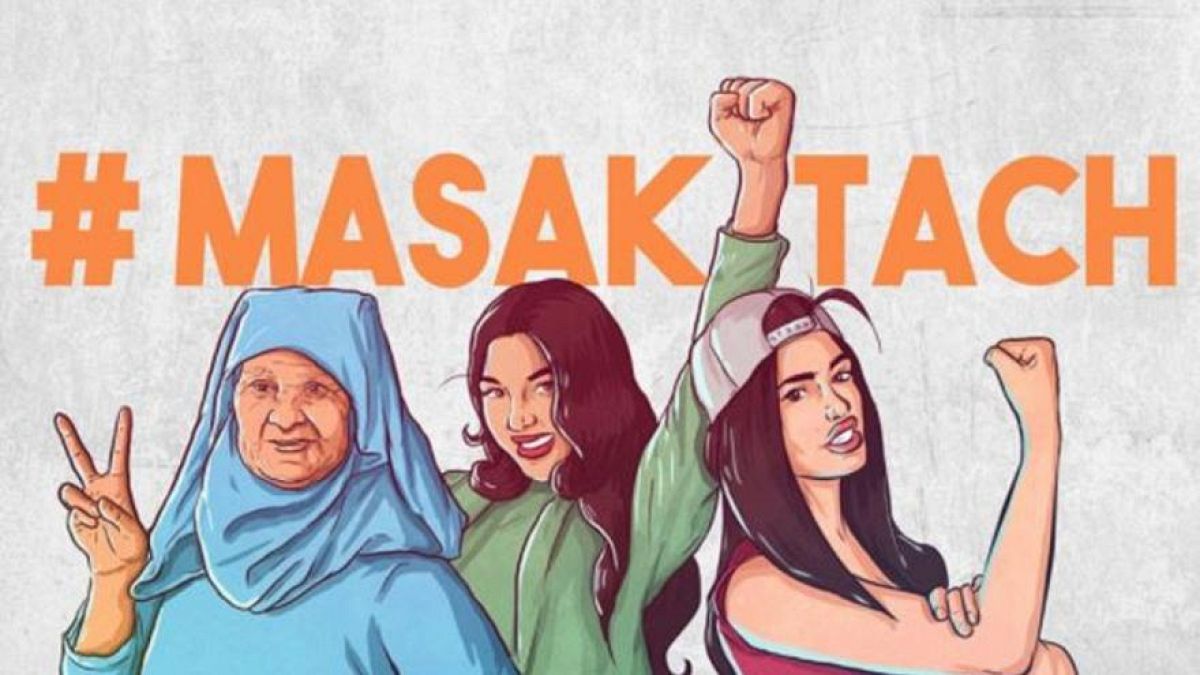Moroccan women condemn "the culture of rape and impunity".
In August 17-year-old Khadija revealed her horrific ordeal to Moroccans. In a video broadcast on social media, the teenager explained that she was kidnapped, raped and tortured for two months by men from her village. Despite the pressure, Khadija did not stay silent.
The #masaktach movement ("I will not keep silent") appeared a few weeks later. Often presented as the Moroccan #MeToo, under this hashtag, women condemn "the culture of rape and impunity". According to one of the founders of the movement, "it is mainly the way in which the Khadija case was treated in the public space" that gave rise to this need to break the silence.
"Several members who created the movement were shocked to see that victims words were constantly being misunderstood by the public,” she said in an interview with our colleagues at Middle East Eye.
A singer excluded from the airwaves
If the testimony of Khadija served as a detonator, another media case that was the catalyst. On 18 September, Moroccan star Saad Lamjarred is remanded in France. He is being prosecuted in a rape case for the fourth time.
On social networks, women asked radio stations not to play the songs of the famous singer. Two Moroccan radios among the most popular, Radio 2M and Hit Radio, stopped broadcasting music from the artist.
"It's via the hashtag #Masaktach that hundreds of tweets have called Moroccan radio stations, Hit Radio in the lead, to stop broadcasting the songs of the pop star," said Tel Quel.
A first modest victory while the figures of violence against women in Morocco are worrying.
According to a survey of the Office of the High Commissioner for Planning from 2011 "it appears from the data, that a population of 9.5 million women aged between 18 to 64, nearly 6 million, or 62.8%, were subjected to some form of violence during the twelve months preceding the investigation". It is the same with regard to sexual violence, "23% of women, or 2.1 million, have experienced sexual violence at some point in their lives."
Violence against women is most visible in public spaces, according to the National Observatory on Violence Against Women in a 2015 report.
Harassment Act
A context that pushed the Moroccan government to legislate. On 13 September, a new law on combating violence against women began. For the first time, it criminalizes "certain acts considered as forms of harassment, aggression, sexual exploitation or ill-treatment".
It is "one of the most important texts strengthening the national legal arsenal in the field of gender equality", welcomed the Minister of Family, Women and Solidarity, Bassima Hakkaoui, in an interview at the MAP agency.
The former minister for women's rights and gender equality activist Nouzha Skalli, however, said the law did not take into account "international definitions of violence against women", citing the example of marital rape which remains unpunished.
On October 10, Khadija was heard by the judges. She confirmed all her accusations. On leaving the court she called on "all girls to be courageous".
